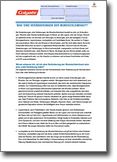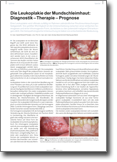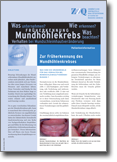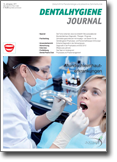Oral mucosal diseases
Most often, a disease of the oral mucosa is harmless. However, any change in the oral mucosa should be checked so that it can be determined whether therapy is necessary or not. Oral mucosal diseases are usually not noticed because they are often absolutely asymptomatic. Since many skin and general diseases are noticeable as changes in the oral mucosa, the dentist is of great importance in the semi-annual routine check of your teeth.
In very rare cases, it can lead to a degeneration of oral mucosal cells. If malignant changes are detected early, action can be taken quickly and greater damage can be avoided.
Some typical diseases of the oral mucosa are:
Aphthae
Aphthae are white, painful vesicles in the oral cavity that occur acutely and are usually lentil-sized. These can be caused by immunodeficiency, stress, injuries to the oral mucosa or hormone fluctuations. They interfere with speaking, chewing and swallowing. With the help of mouthwashes and adhesive ointments, they heal without scarring within 10 to 14 days.
Stomatitis
Symptoms of stomatitis are the reddened and inflammatorily altered oral mucosa, as well as bad breath, loss of appetite and easily triggered oral mucosal bleeding. In addition to bacterial infections, there are other causes of inflammation of the oral mucosa, such as:
- inadequate dental/oral / prosthesis care
- Burns caused by food or drinks that are too hot
- Nicotine/alcohol abuse
- dry oral mucosa
- Vitamin deficiency
- Irritation and injuries of the oral mucosa
- weakened immune system
Depending on the cause, drug treatment may be necessary.
Oral thrush
This fungal infection, caused by a yeast fungus, can be recognized by cream-colored, yellow-white or red spots on the oral mucosa that can be wiped off. The tissue under these areas can hurt. Also, patients with thrush infestation may have bad breath. With the appropriate antifungal agents (antifungals) oral thrush can be treated very well.
Leukoplakia
This change in the oral mucosa is considered a precursor to cancer. The mucous membrane is thick and white and can not be wiped off. The cause of this is usually tobacco consumption or chewing on the cheek. If your dentist detects leukoplakia, he will remove tissue from you to determine whether it is a benign or malignant tissue change.
Oral cancer
Cancer is a malignant neoplasm of tissue. In the interior of the mouth, malignant tissue changes occur in various places in oral cancer. These tissue changes usually need to be removed and/or treated with radiotherapy and/or chemotherapy. Early detection of the disease is therefore very important for successful treatment.
further information on the topic of oral mucosal diseases
 |
 |
 |
||||||||
 |
 |
 |
||||||||
